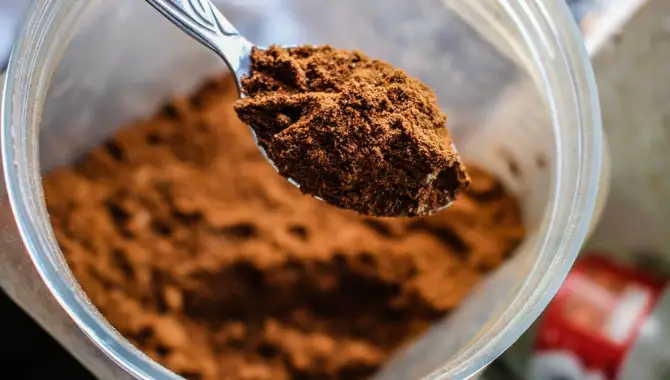If you are new to the vegan lifestyle, getting used to the various desserts and sweet treats you are unable to eat can present a challenge and, in particular, some struggle to adjust to the idea that milk chocolate is off-limits. With that being said, many chocolate-based foods do not necessarily contain milk and this is especially true of foods that are made using cocoa powder. Of course, the absence of milk alone does not necessarily mean something is suitable for vegans and cocoa powder does cause a certain amount of confusion in of itself.
So is cocoa powder vegan? If it is pure cocoa powder, the answer is ‘yes’. Essentially, cocoa powder is made from ground cocoa solids, which are extracted from cocoa beans. In its pure form, cocoa powder contains no animal products. Even so-called Dutch-process cocoa powder is classed as a vegan.
In this article, I will go into more detail about what cocoa powder actually is, how it is manufactured, and why it is usually considered safe for vegans to consume. However, I will also outline some of the exceptions that exist to this general rule and explain why it is important to check ingredients lists on any cocoa powder products you buy. Additionally, it is worth noting that there is a moral issue linked to child slavery, which prevents some vegans from buying cocoa powder and I will try to cover the main viewpoints on this as well.
Is Cocoa Powder Acceptable for Vegans?
In its pure form, cocoa powder is made by pulverizing cocoa seeds, creating a paste, and then removing the fat or cocoa butter from this paste. This leaves behind crumbly cocoa solids, which can then be ground down into a fine powder, creating a cocoa powder. In essence, cocoa powder is an ingredient that is missing from white chocolate. It is widely used to provide chocolate flavoring within baking, for various drinks, and in desserts like ice cream.
Pure cocoa powder is entirely extracted from cocoa beans, meaning it will contain no animal products whatsoever. With this in mind, broadly speaking, it is factual to say that cocoa powder is suitable for vegans to eat. This also means that, despite vegans needing to avoid milk chocolate, you may be able to consume many chocolate flavored treats.
This remains true when dealing with Dutch-process cocoa powder too. Put simply, Dutch processing involves using an alkalizing agent to treat the cocoa powder. Pure cocoa powder, sometimes called “natural blend”, falls on the acidic end of the scale, whereas Dutch-process cocoa powder is alkaline. Aside from lowered acidity, Dutch-process cocoa powder has a milder or more mellow taste, which can be especially useful for chocolate drinks.
Despite sometimes being used interchangeably, it is vital that I point out at this stage that there is a fundamental difference between pure cocoa powder and the powder used to make instant drinking chocolate, AKA hot cocoa or hot chocolate. With the latter, a number of additives are included within the ingredients, with dried milk usually being one. The milk solids used in hot chocolate are usually derived from cow’s milk, making it unsuitable for vegans.
Similarly, if you are buying pre-packaged cocoa powder from a shop, some of these products will have added ingredients, in order to alter or enhance the powder’s flavor or change the properties of the powder in other ways. Again, dried milk is a fairly common ingredient to be added, so you will need to take care to read the ingredients list, rather than assuming that any cocoa powder you find will definitely be vegan-friendly.
Another ingredient you may find listed is lecithin and this is potentially problematic for vegans because it can be sourced from either plants or eggs. Soy lecithin can be eaten by vegans, whereas lecithin sourced from egg yolk cannot. Some manufacturers will specify that they use soy lecithin, but others will not, meaning you may need to steer clear.
One potential issue, which is sometimes overlooked, is that cocoa powder may be produced using machinery that is also used to produce hot chocolate, which contains milk solids. Depending on what informed your decision on why to become vegan, this could be a deal-breaker, so you may need to stick to brands that clearly specify they are vegan.
So with all of this in mind, how can you actually be sure that the cocoa powder you buy is compatible with a vegan diet?
How Can I Avoid Non-Vegan Cocoa Powder?
The easiest way to avoid non-vegan varieties of cocoa powder is simply to check the packaging and read the ingredients list. If the product is pure cocoa powder, it will be vegan-friendly, whereas if it is drinking chocolate or a variety of cocoa powder with added flavorings, it may not be. The main problematic ingredient to look out for is milk, but you might also need to avoid lecithin too unless it is specified to be soy lecithin.
Ideally, you should try to find a cocoa powder which specifically states it is suitable for vegans, or which has vegan certification from a recognized vegan society, as this will guarantee that it meets vegan standards throughout the production process. For instance, this is likely to be the single best way to guarantee that your vegan cocoa powder has not been made using the same equipment like a hot chocolate powder containing milk.
If you have difficulties reading labels, or if you are still unsure about what ingredients are off-limits, you may be able to find resources online to help you. You could also consider contacting manufacturers directly to ask whether or not their cocoa powder is suitable for vegans. The vast majority of manufacturers will be more than happy to clarify this to you and they may even be able to point you in the direction of vegan products they do sell.
Your options for contacting brands are numerous. You may find customer support numbers on the packaging, or you could find contact information on their website. However, one of the quickest ways to get an answer may be to reach out to them via social media platforms like Twitter or Facebook and ask a customer service rep.
Finally, if you are ordering a dish that contains cocoa powder in a restaurant, and the menu does not specifically state that it is suitable for vegans, it is best to ask the person serving you.
Why Do Some Vegans Avoid Cocoa Products?
While some vegans simply avoid the use of animal products within food, others oppose products that contribute to the exploitation in any way, including humans. This links to cocoa powder and other products derived from cocoa beans because the global cocoa industry relies heavily on child labour, slavery and trafficking. This is particularly prevalent in West African countries, like Côte d’Ivoire and Ghana. Indeed, these two countries alone are believed to have a total of more than two million children actively involved in the cultivation of cocoa beans.
Despite some efforts to reform the industry, the fact remains that exploitation of children still plays a major role in the production of cocoa powder and other similar products. Many of these children work in dangerous conditions, for long hours, receiving little or no pay. Some are taken from their families and enslaved.
At present, Côte d’Ivoire is by far the largest producer of cocoa beans in the world, with Ghana in second. Combined, these two countries are estimated to produce around half of the current global total for cocoa bean production.
Therefore, while cocoa powder is generally regarded as vegan – at least by most standards – some vegans do opt to take a moral stance against cocoa-based products that may have been made through the practice of child slavery or child labor. Given the prevalence of this issue within the cocoa industry, it can be difficult to know whether purchasing a specific product may contribute to the problem, so some vegans simply opt-out, or avoid cocoa when practical.
Whether you opt to do the same will largely depend on your reasoning on why to become vegan in the first place. It is also important to understand what steps can be taken to minimize the risk of contributing to this problem.
Ethically Sourced Cocoa Powder for Vegans
While some vegans do take action to challenge the abuses that occur within the global cocoa industry, it is worth highlighting some of the ways cocoa powder can be more ethically sourced too. This will then make it possible for all vegans to enjoy cocoa powder that meets vegan standards, as well as wider ethical standards.
The single biggest step you can take is to seek out the cocoa powder that is clearly labeled as a Fair Trade product. This means farmers are paid a fair wage for their product, while inspections are carried out and cultivation must live up to minimum criteria. The criteria for Fair Trade specifically outlaw child labor, and farmers that are paid fairly are then able to employ and pay adult workers instead. Fair Trade products also tend to be better for the environment.
This approach has been backed by Global Exchange – a human rights organization, which has argued that customers displaying a preference for Fair Trade cocoa products will help to shift the entire industry in that direction.
Some cocoa powder products will specifically be labeled as “slavery-free” and these can be safely purchased. In the absence of Fair Trade products, organic cocoa powder is less likely to be sourced from farms using child slaves. However, it is crucial to understand that the “organic” label is not an absolute guarantee of it being ethical.
If you remain unsure about whether or not a particular cocoa powder product is made using ethically sourced ingredients, I would recommend contacting the brand directly and asking the question. Customer support lines may be available and included on the packaging, but email and social media both serve as viable alternatives.
Welcome to VeganClue - My name is Robert Van De Ville and together with my team we spent hundreds of hours researching the most relevant topics for Vegans and non yet Vegans. Are you looking for more information about Veganism, animal welfare, diet, health, and environmental benefits of the Vegan lifestyle? You are in the right place! Enjoy the site.


